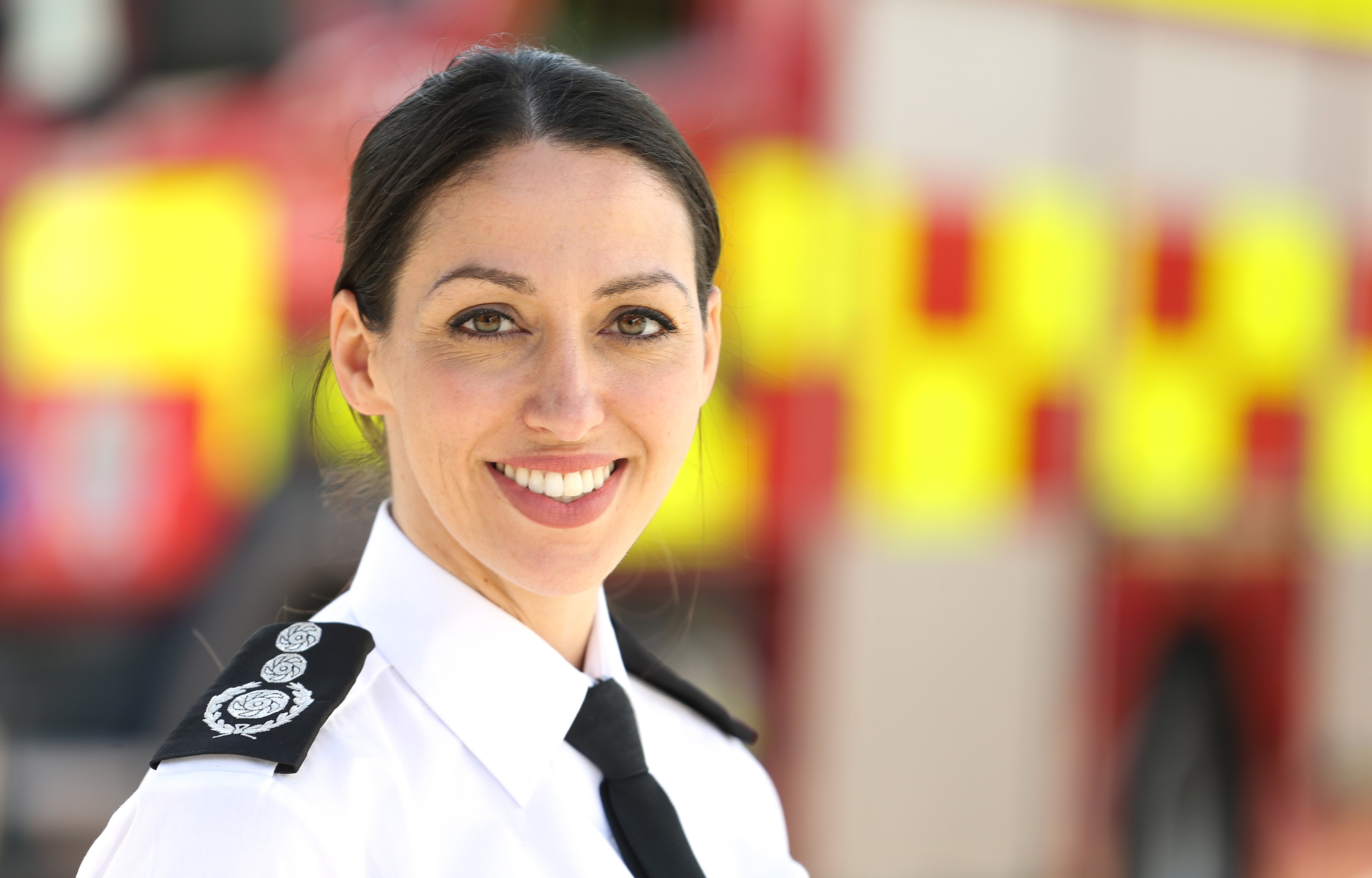Top firefighter Sabrina Cohen-Hatton has spoken out about homelessness in her younger years and her support of the Big Issue. She recently appeared on BBC’s Desert Island Discs, and here, she shares her story with us at Generation Tribe.
I was nine years old when my father died. My mother suffered really badly with her mental health, and we lived in abject poverty for some time. Just before I turned 16 our family broke down and I ended up homeless, sleeping rough on the streets of Newport.
Homeless at 16
I had some very, very challenging years, and as a young girl experiencing homelessness, it’s not easy. It was the most difficult period of my life.
If someone falls over in the street everyone rushes over to help them back up. But if you are sat on the side of the street with no food and no hope, people walk past you like you’re not even there.
There was very little help available to me. I tried to get some help with housing, and I was told I wasn’t a priority because I was already homeless. Although that sounds really harsh that’s not a policy I can resent, because I tell you what I wouldn’t wish it on anyone. It was horrible.
I knew the only way I was going to get out of it was doing something myself. I didn’t have any safety net.
The one thing that helped me was a magazine called The Big Issue. It gave me an opportunity to work my way out of poverty. Being able to do that meant I was able to change the way I was living.
Becoming a firefighter
One of the things that drove me on was the idea of becoming a firefighter. After securing myself a flat in the Welsh valleys I joined as an on-call firefighter when I was 18, and then became a full-time firefighter.
Read more: I left my career in finance to become a personal trainer and firefighter
I was lucky enough to work my way up through the ranks, most recently serving as deputy assistant commissioner in London Fire Brigade. I have been involved in significant incidents, such as the Westminster and Finsbury Park terror attacks and the aftermath of Grenfell.

But it was an incident I attended earlier in my career that prompted me to explore the psychology behind the decisions that we make. I was part of a crew attending an incident where a firefighter had been severely injured and there was a one in four chance it was my husband.
For that moment you think that you are going to have the same experience as the people we help every single day; who wake up to corn flakes and normality, only for their whole world to be turned upside down. But more than that I was torn between that role of a loved one and as a responder.
It turned out it wasn’t him. I felt this huge sense of relief, but also this huge sense of guilt. I felt like by not wanting it to be him I had wished it on someone else. And that someone else wasn’t just a colleague, he was our friend. I struggled with that for a long time.
Doing a PHD
So to try and do something constructive with it I started looking at what causes accidents. I found that 80 per cent of accidents across all industries happen from human error. To try and unpick that and reduce human error I completed a PHD while I was serving as a firefighter, looking at risk-critical decision making.
This research has helped shape emergency guidelines about how we make decisions under pressure in those highly pressured, highly stressed environments and look at techniques our firefighters can take to make better, safer decisions in those situations.
Feeling proud
One thing my career has given me, which I am eternally grateful for, is operational empathy. I know that if I am commanding a large incident and I am asking people to do things it’s not just that I know what I want to achieve, I know how it feels to have that specific task asked of me.
I am very proud of my career and how I have achieved it. But I appreciate that not everyone will have been able to find their own way out of their own difficult circumstances.

We talk about providing a safety net for people, but that’s not enough; we need to provide a ladder. And we need to think about social mobility and what we can do to help people to find opportunities for themselves.
There are 14 million people in the UK today who are experiencing poverty – that’s a fifth of our society. They are not limited by their potential, only by their opportunities.
Imagine how much stronger as a society we could be by releasing the potential of that fifth.
The fire service
Firefighters are trusted by people to know what to do when they are experiencing, quite frankly, the worst day of their lives. I spent over two years feeling like it was the worst day of my life. I could relate to that, and in a funny kind of way, I wanted to rescue others in a way that no-one had been able to rescue me.
The brilliant thing about the fire service is that they were able to see past what, on paper, didn’t look like a brilliant prospect. They took me on the strength of who they believed I could be.

